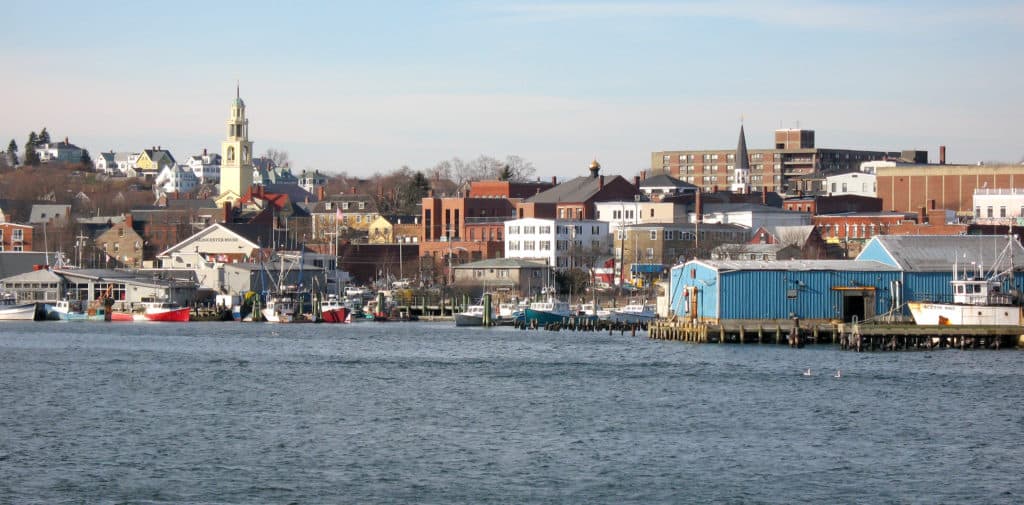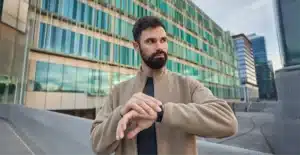Gloucester’s Angel Program urges law enforcement to rethink how they treat addiction
In May of 2015, a revolutionary addiction treatment initiative was started in Gloucester, a small fishing town on the North Shore of Massachusetts. Like the rest of the country, they were hit hard by the opioid epidemic and sick of seeing those who needed help the most get put behind bars.
The Gloucester Police Department’s Angel Program collaborates with the local community, law enforcement, and several treatment programs to give those struggling with addiction a second chance and break the cycle of crime, jail, and stigma that goes with it. This initiative implements various principles that promote treatment over punishment:
- Addicts can come to the police and access treatment options without prosecution.
- Low-level drug offenders receive an ultimatum to get treatment.
- Addicts, families, and caregivers receive Naloxone to prevent deaths from opioid overdoses.
- Police officers act as mediators, helping drug offenders to find a treatment program.
Upon the program’s launch, former Gloucester Police Chief, Leonard Campenello made a public service announcement on Facebook, stating “Any addict who walks into the police station with the remainder of their drug equipment (needles, etc.) or drugs and asks for help will NOT be charged. Instead, we will walk them through the system toward detox and recovery. We will assign them an “angel” who will be their guide through the process. Not in hours or days, but on the spot.”
Changing the Conversation about Addiction
Since the program started, Gloucester has seen a substantial decrease in drug-related arrests and fatal overdoses. A study by Boston Medical Center and Boston University found that among 417 cases where people visited the Gloucester police station and were eligible to receive treatment, “94.5 percent were offered direct placement and 89.7 percent enrolled in detox or other recovery services.”
John Rosenthal, a real estate developer in Boston, partnered with Campenello and started the Police Assisted Addiction and Recovery Initiative (PAARI), a non-profit supporting the Angel Program and helping other police departments around the country address the opioid epidemic. This organization consists of philanthropists, business owners, police officers and academics working for a common goal of “saving lives from drug overdoses, reducing the number of drug addicts and opioid drug demand, thereby devaluing a seemingly endless drug supply.”
Over 200 police departments in 28 states have adopted the Angel Program. A more compassionate approach to treating addiction has shown law enforcement that promoting treatment rather than punishment is a far more effective approach. Communities involved with PAARI have seen a 25 percent reduction in addiction-related crimes, more trust among their communities and lowering costs by directing people to treatment instead of the criminal justice system.
Author
-

President, CEO & Founder at Northbound Treatment Network
Paul Alexander is the CEO, President & Founder of Northbound Treatment Network in Newport Beach, California. He believes wholeheartedly in transformational leadership, organizational health and effective, fully integrated substance use disorder and mental health treatment. With over 27 years of experience in behavioral healthcare, Paul has extensive knowledge of “in vivo” treatment modalities, clinical development, operations, strategy, marketing and financial planning. He has been widely recognized for his development of collegiate-based residential treatment programs for students in recovery and authored a research study at The University of California confirming this modality’s effectiveness.
Paul’s comprehensive professional experience, willingness to innovate, and emphasis on organizational health are vital factors in Northbound’s continued success. Paul received his Certified Addiction Treatment Specialist training at Saddleback College in Mission Viejo, CA, and was awarded Outstanding Alumni Service Award in 2002. Paul holds a Bachelor of Arts degree in Criminology, Law and Society, Summa Cum Laude, from University of California, Irvine, and a Juris Doctorate degree from Loyola Law School of Los Angeles. Paul currently serves on The National Association of Addiction Treatment Providers (NAATP) board. In addition, he serves on The Family Recovery Foundation board and The CarePossible board in Orange County; both organizations are committed to raising funds for family recovery and treatment for former military personnel. Paul is in recovery himself and lives in Orange County with his wife Silvana and his two young sons, Noah and Dean.










